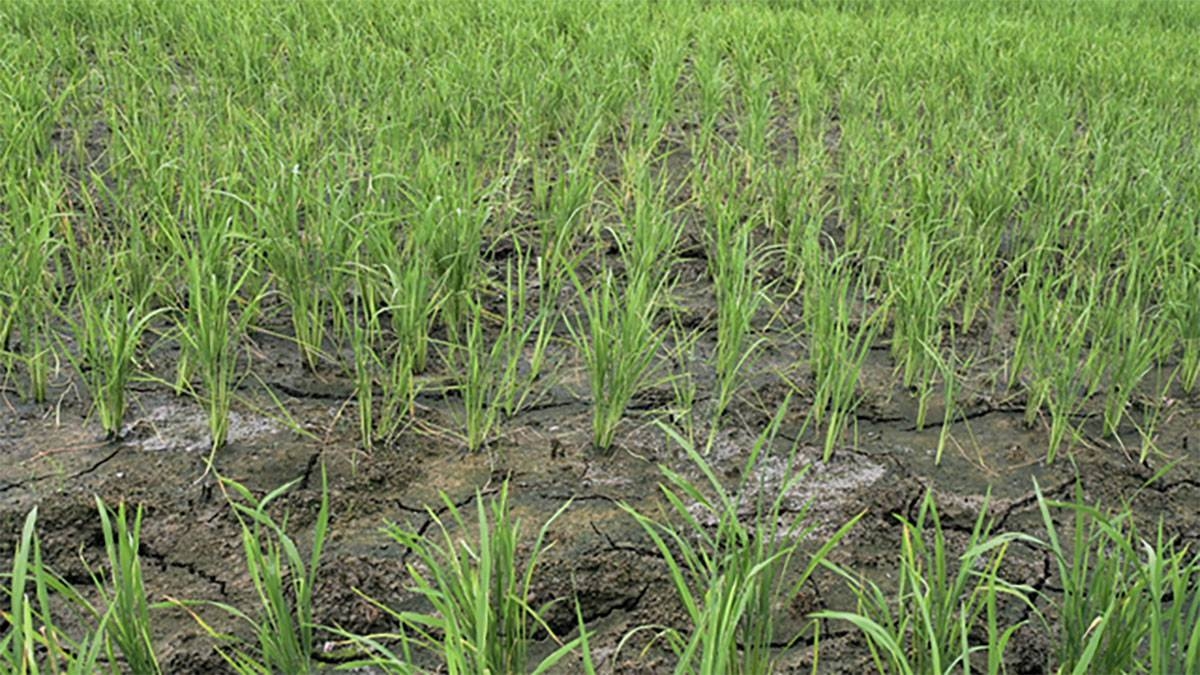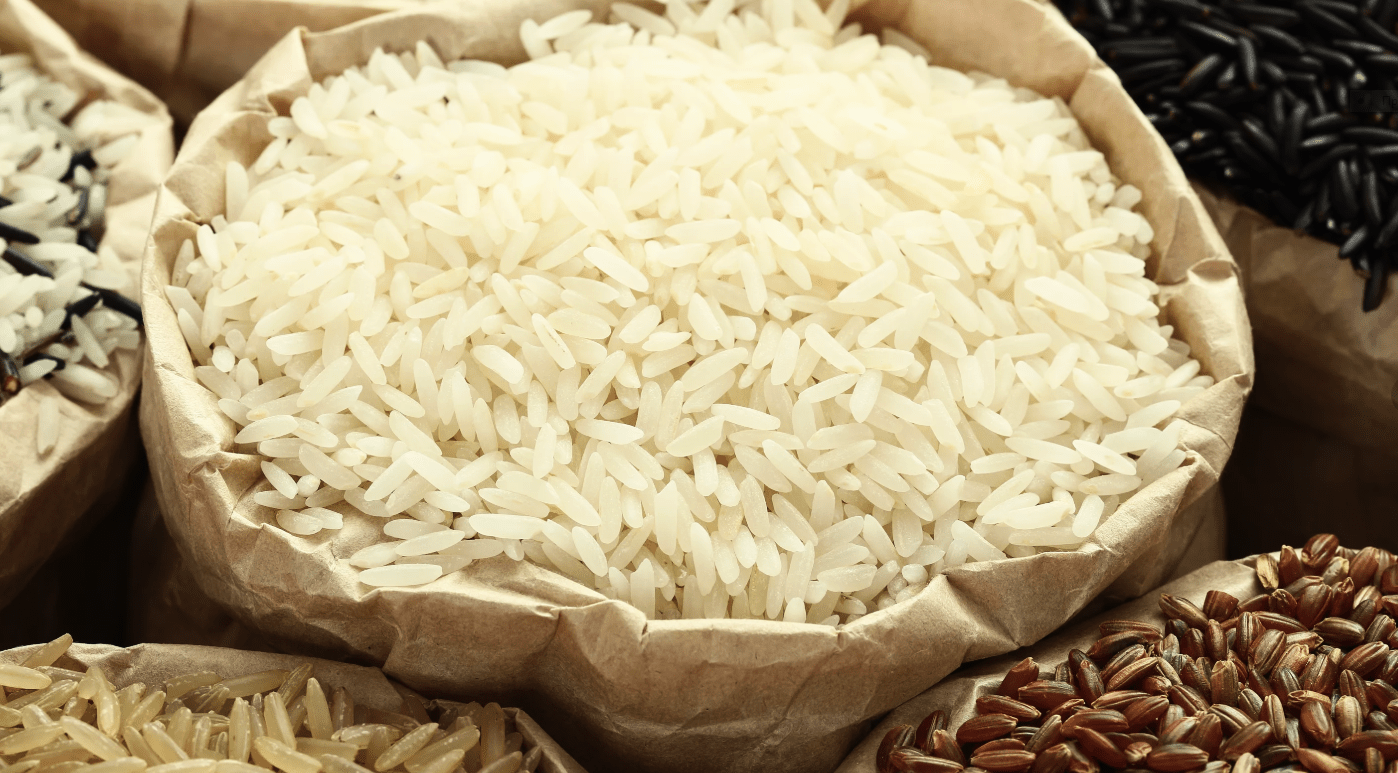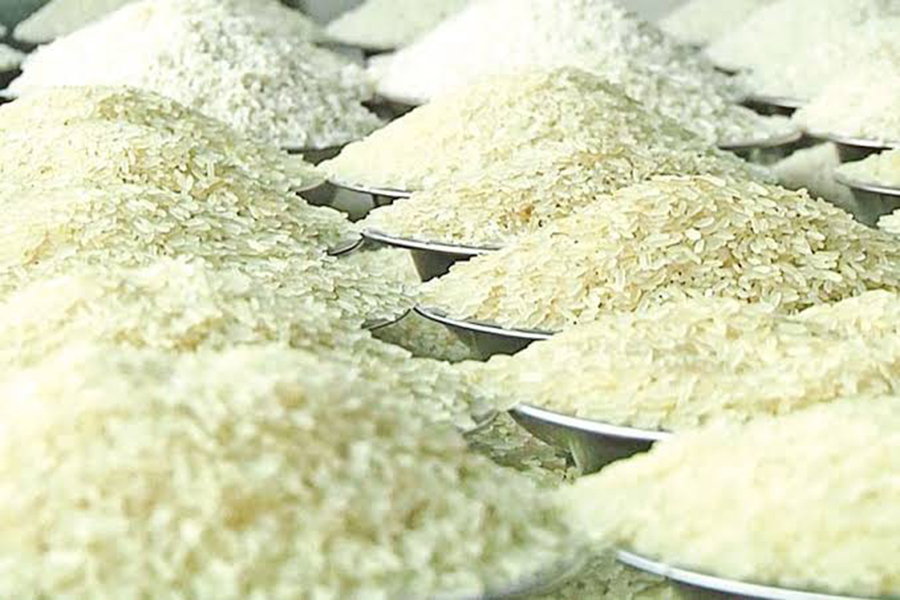Tags
PhilRice: Use heat-tolerant varieties
THE Philippine Rice Research Institute (PhilRice) under the Department of Agriculture is encouraging farmers to plant heat-tolerant varieties that can yield up to 7 tons per hectare (tons/ha) or above the national average of around 4 tons/ha.
“This is in preparation for the projected temperature increases,” DA-PhilRice said, urging farmers to test the adaptability of these rice varieties to withstand high temperatures in their localities.
Career scientist Norvie Manigbas of PhilRice said that data spanning 50 years suggests a temperature increase of 1–2 degrees Celsius in the future, highlighting the need to utilize National Seed Industry Council (NISC) Rc 600 and Rc 602 to the fullest as these varieties can endure temperatures up to 38 C. Both heat-tolerant rice varieties were developed by PhilRice.

The Philippine Rice Research Institute has seed varieties that can thrive under high-temperature conditions. PHILRICE PHOTO
Manigbas said NISC Rc 600 and Rc 602, the country’s first high-temperature-tolerant rice seeds, display exceptional traits crucial for resilience in high-temperature conditions.
“These can withstand temperatures up to 37 C and even up to 38 C in controlled environments like glasshouses,” he said.
Manigbas explained that the NSIC Rc 600 under heat stress yields 6.3 tons/ha and, in normal conditions, between 6.5 and 7 tons/ha. This rice variety matures in 110 days and exhibits resistance to both deadhearts and whiteheads.
On the other hand, he said NSIC Rc 602 yields 6.2 tons/ha, matures in 109 days and shows resistance to a whitehead.
“These varieties demonstrate intermediate resistance to blast, bacterial leaf blight, sheath blight, brown planthopper and green leafhopper,” Manigbas said.
The DA-PhilRice is encouraging farmers who are interested in testing the varieties to inquire and access them through PhilRice’s Business Development Division.
Manigbas also explained that heat stress during the vegetative phase can cause leaf discoloration and accelerated growth, potentially reducing the yield potential of heat-sensitive rice varieties.
“Temperatures exceeding 35 C during the reproductive stage can lead to yield reductions starting at 14 percent, escalating to 14 to 20 percent as temperatures rise further,” he added.
Manigbas also advocates for intensified promotion and deployment of these varieties to increase adoption.
“With the challenges of climate change, PhilRice is continuously developing rice varieties that can tolerate high temperatures,” he said, adding that this is with the support of the Tsukuba, Japan-based Institute for Agro-Environmental Sciences of the National Agriculture and Food Research Organization.
According to PhilRice, more breeding materials are being tested to develop high-temperature tolerance varieties.
It said the flowering stage of these materials is planned between April 15 and May 15, a period typically experiencing the highest temperatures during the dry season based on 15 years of weather data.
“The development of high-temperature-tolerant seed varieties is a meticulous process involving years of breeding and testing. Researchers evaluate various characteristics, including grain filling, fertility and resistance to pests and diseases, to ensure the viability and effectiveness of the selected varieties,” Manigbas said.
Varieties including NSIC Rc 600, NSIC Rc 480, and IR (International Rice) 64 are being studied in flooded and controlled irrigation using the Micrometeorological Instrument for Near-Canopy Environment of Rice (Mincer).
Mincer records temperature and humidity data every two minutes and calculates the heat index once flowering begins.
Manigbas said they have advanced materials in observational nursery trials, some of which were nominated for national cooperative tests in high-temperature ecosystems.
“We aim to acquire new varieties within two years, but for now, let us encourage more farmers to adopt NSIC Rc 600 and 602 in areas with high temperatures,” he said.
https://www.manilatimes.net/2024/05/16/business/agribusiness/philrice-use-heat-tolerant-varieties/1946704Published Date: May 16, 2024






